Gear, Mood and Intention: Q+A with Warpaint’s Jenny Lee Lindberg
In the span of a 12-year career, you might expect a band to experience turmoil, triumph, shape shifting, experimenting, questioning—a lot of the same qualities to expect in a marriage, and in a lot of ways a band’s bond is a marriage.
My first memory of Warpaint was as a teenager in 2009. I was walking past Valentines, one of the smallest venues in Portland, Oregon, and stopped to watch the entrenching hypnotism of the band’s onstage chemistry. At the time, I was beginning to write my own music and still practicing the incredibly rigorous theory of classical guitar. Collaboration was foreign to me, which is why watching four women so in tune with each others next moves—like a wave to the ocean—was so mesmerizing. I began thinking that this band actually didn’t have an option but to create together.
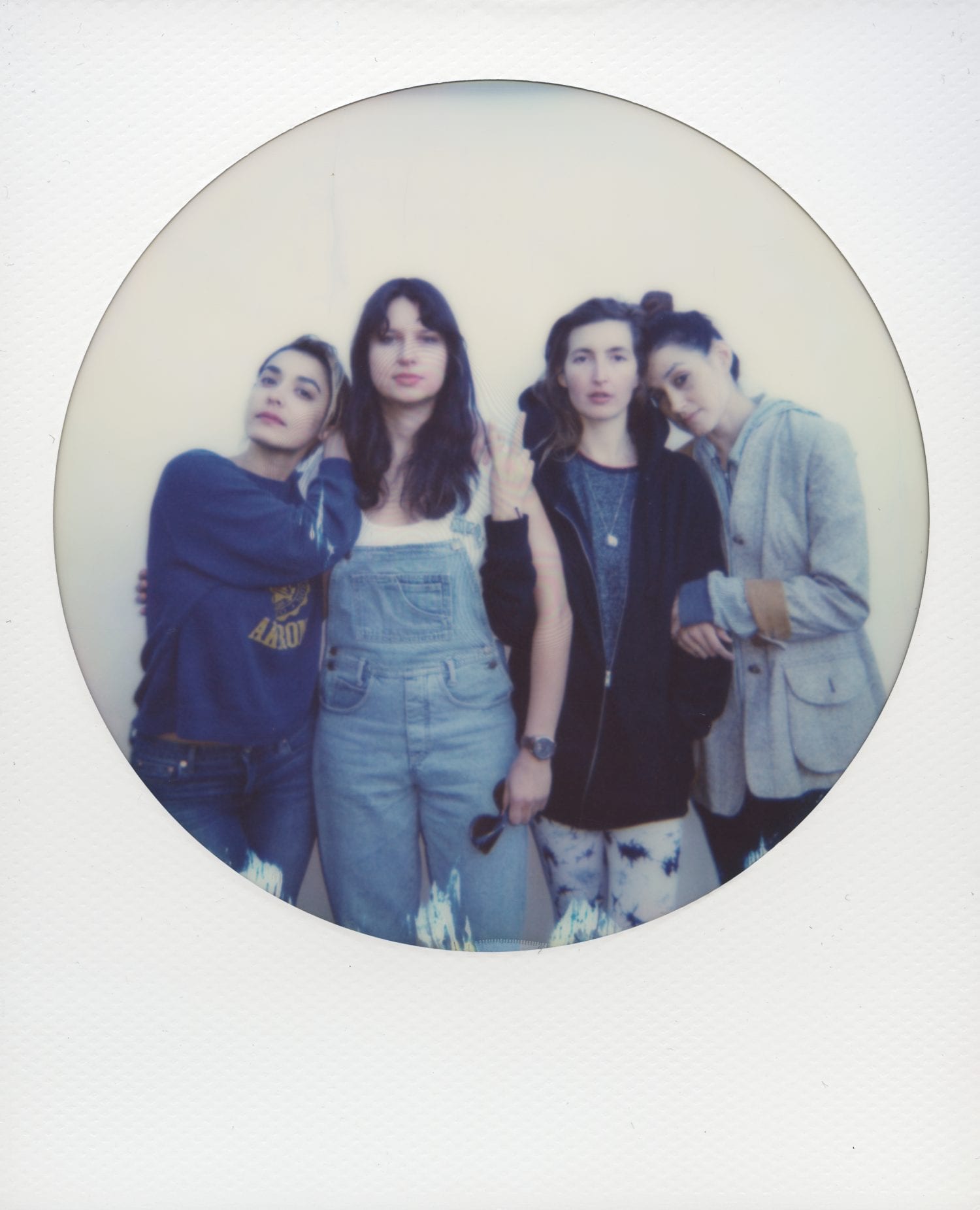
In 2010, Warpaint debuted their first full length LP, The Fool. Both fans and critics fell in love with the moody intricacies of Emily Kokal and Theresa Wayman’s interchanging harmonic melodies while Jenny Lee Lindberg and Stella Mozgawa maintained the foundation.
By the September, 2016 release of their third album Heads Up via Rough Trade Records, it’s still hard to truly pinpoint any member of the band as a “frontwoman.” In rock music, bassists and drummers are often seen as the rhythm section and, for whatever reason given less credit than vocalists and guitarists, but Warpaint battles that with an individual read on when to push and release energetically.
On a day before their Portland appearance at the Wonder Ballroom (the band’s third show of their latest tour), I sat with Jenny Lee on a nice green patch of grass in between a school and a busy street to discuss the band’s songwriting approach for Heads Up, Lee’s list of gear, and five things you need to be Warpaint for Halloween.
She Shreds: Tell me about the intention behind this record.
Jenny Lee Lindberg: [With] the last two albums, we were on tour and we would have the songs written, and we would go record them and they were always a little bit, I want to say, subdued on the album as opposed to the live performance. We’ve been told that for years and it even feels that way. It’s always more energetic [live] and you’ve seen us before—we often jam and we go off into little moments. So the idea behind this album was to take that energy that we have when we play live together and put it on an album. Let’s actually be a little bit more representative of how we are live together, you know what I mean?
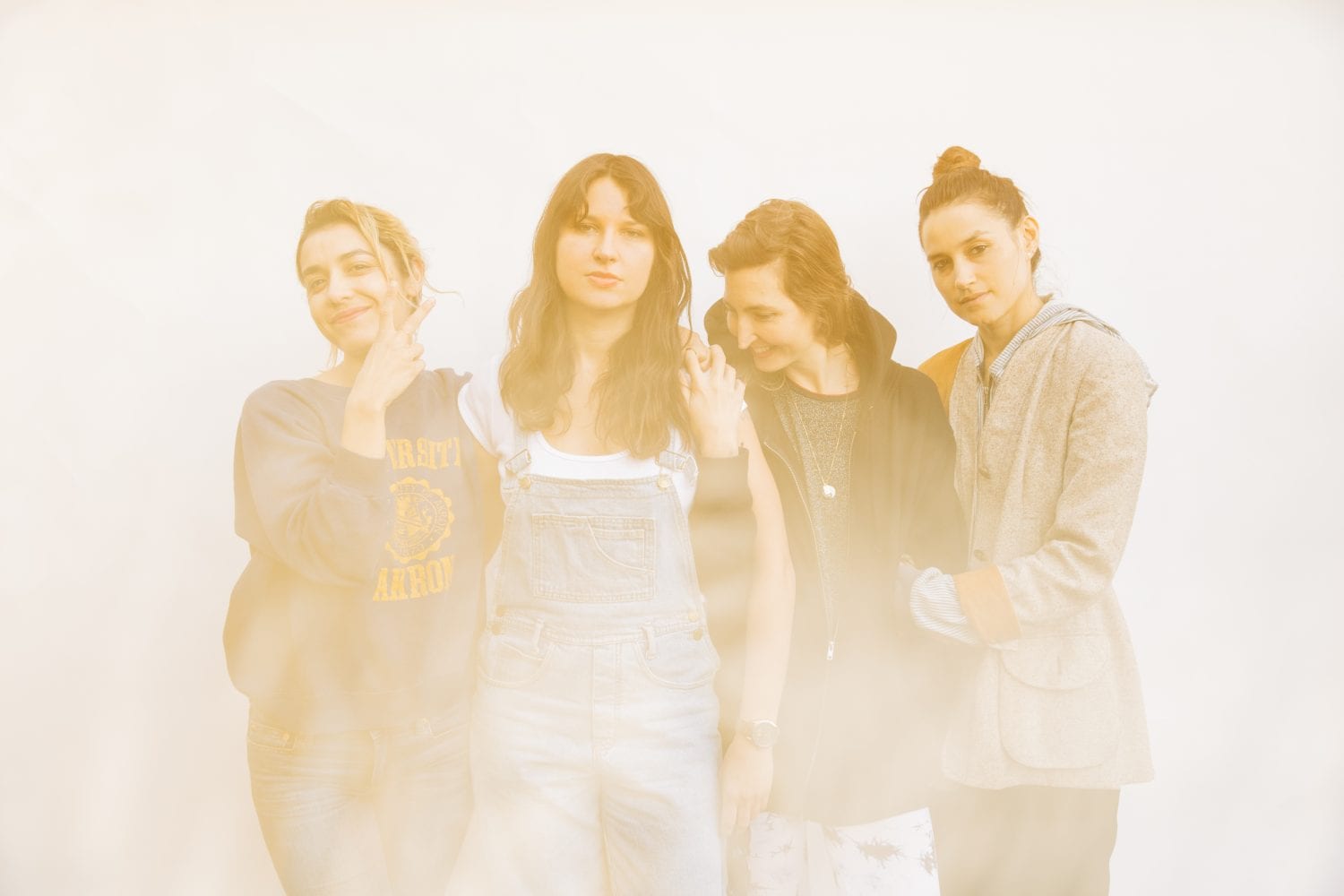
I read a quote from Emily saying, “I want to go back to the basics with this [album].” Do you feel the same way? Do you think that you went back to the basics in the studio?
I don’t really know if I would say that. I wouldn’t describe it as going back to the basics, but I feel like we definitely recorded it differently than we ever have.
Whatever we wrote in the moment we stuck with it as opposed to the way we’ve done it in the past which was write the songs and they’ve been songs for three years and then had forty different versions of that one song. You just keep changing your mind. But when you first write the song you’re like, “This is amazing.” That’s what happens when we jam together and when we’re on stage. We’re just making shit up in the moment. A lot of that was happening in this record where you had to just go with your first instinct and you didn’t have time to ponder.
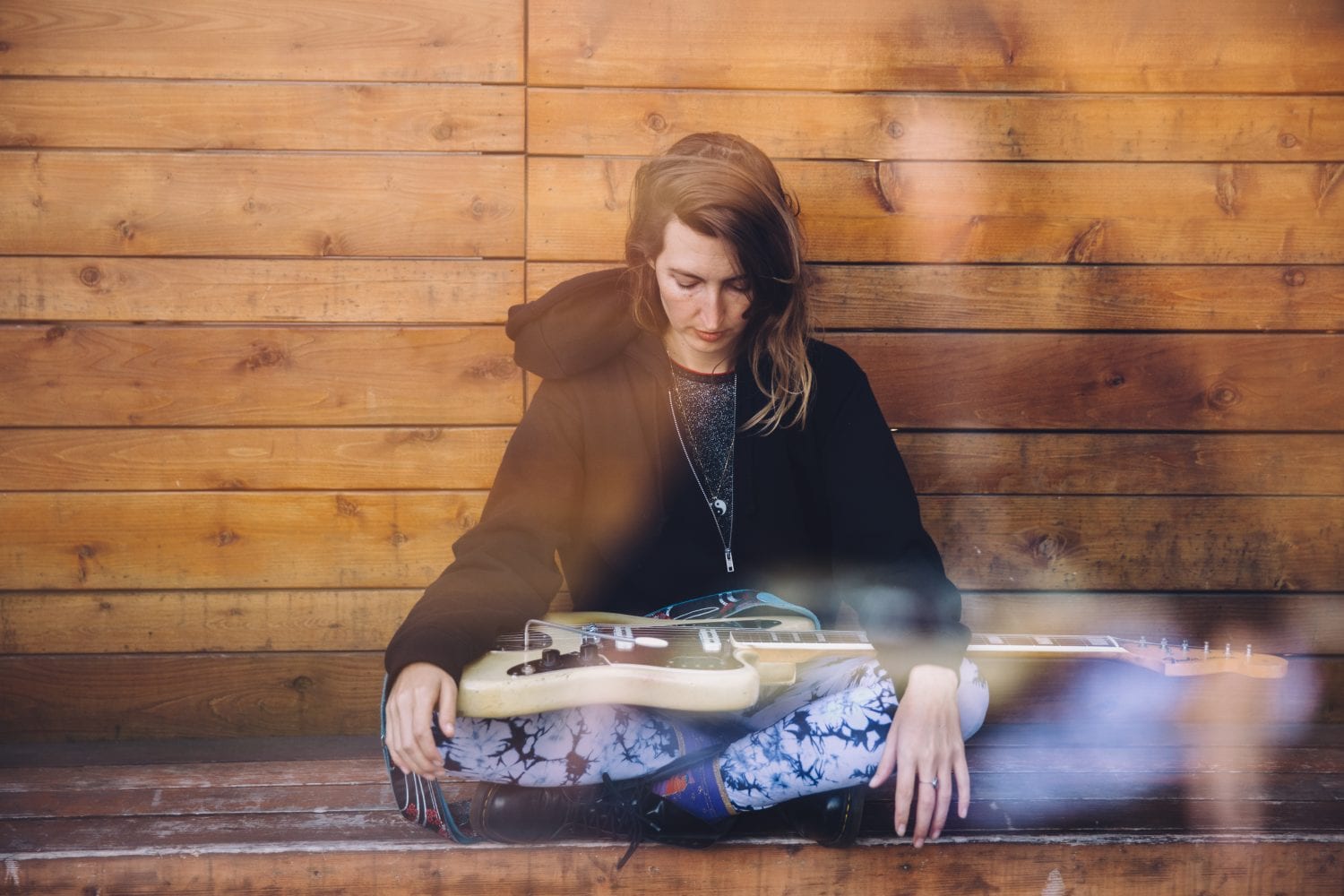
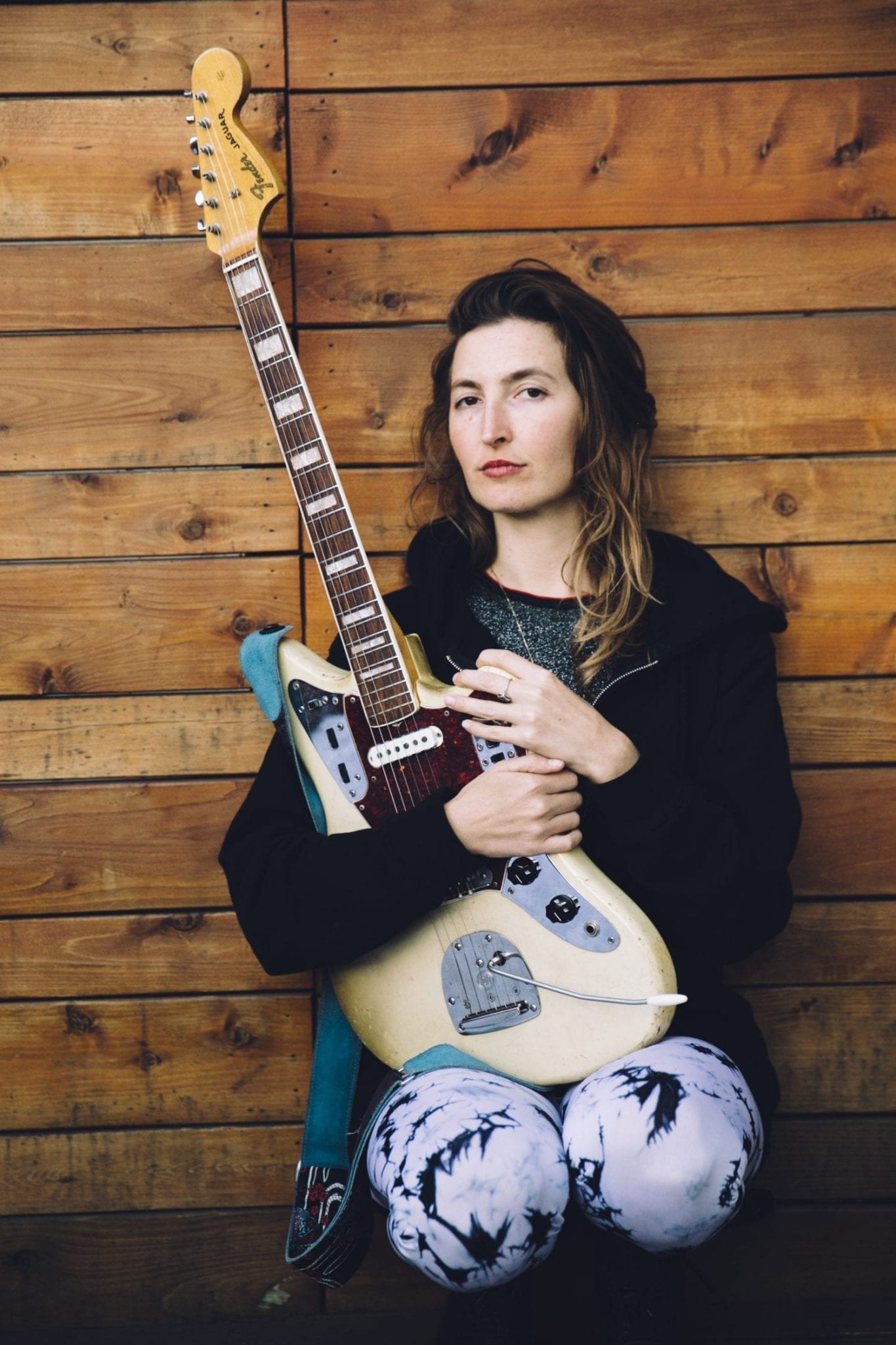
The bass feels more at the forefront of these songs. Was that intentional?
I think maybe things are just a little bit more minimal and I feel like maybe it’s just not as complicated. There’s a lot of things that we would do in the past that were super intricate. A lot of the times people will tell us, “Oh it’s interesting, this new electronic path that you guys are taking.” We’ve been using the same shit since day one. You just can’t really hear it in the mix as well because there’s Emily’s guitar, Theresa’s guitar, my guitar.
I think right now we’ve just become a little bit more spacious and giving each other room to breathe and let the parts shine the way that we just have evolved as a band, I think. We didn’t say like, “Let’s make this a bass-driven song,” but there are definitely some things that started with the bass and then things were written around that. That often happens in the band for sure. It’ll be drum and bass and then people will put stuff on top of it. I think the intention was just let’s make a dance-y record. Let’s have fun. Let’s try and capture the energy that we have playing live and put it on an album for once.
Gear wise, did that change what you brought into the studio?
No. It didn’t, actually. There’s a couple of tracks that I play guitar on and there’s a few when I played a [Fender] Bass VI. Theresa is playing bass on a song. The one thing too that we did differently this time around, which I love, is that the vocals are more present. They’re not as reverb-y and there’s a lot of three part harmonies going on which we never used to do. It would be two parts or whatever, but it was like there’s full on three part harmonies happening on a lot of it and I think that’s great.
Like you said, there’s always a few layers of effects. Do you all take time to experiment with effects for your guitars?
On my pedal board I’ve got digital delay. I’ve got an overdrive. I’ve got an octave pedal. I’ve got a rat pedal. A chorus pedal and I think that’s it. It’s a lot, but I’m not using those at the same time at all. No way. I don’t really ever use the delay. I did use the delay on one song. I didn’t use the reverb. I used the overdrive and the chorus. That’s it. So I only used three pedals. I always have the chorus on, but that’s just my pedal board from over the years.
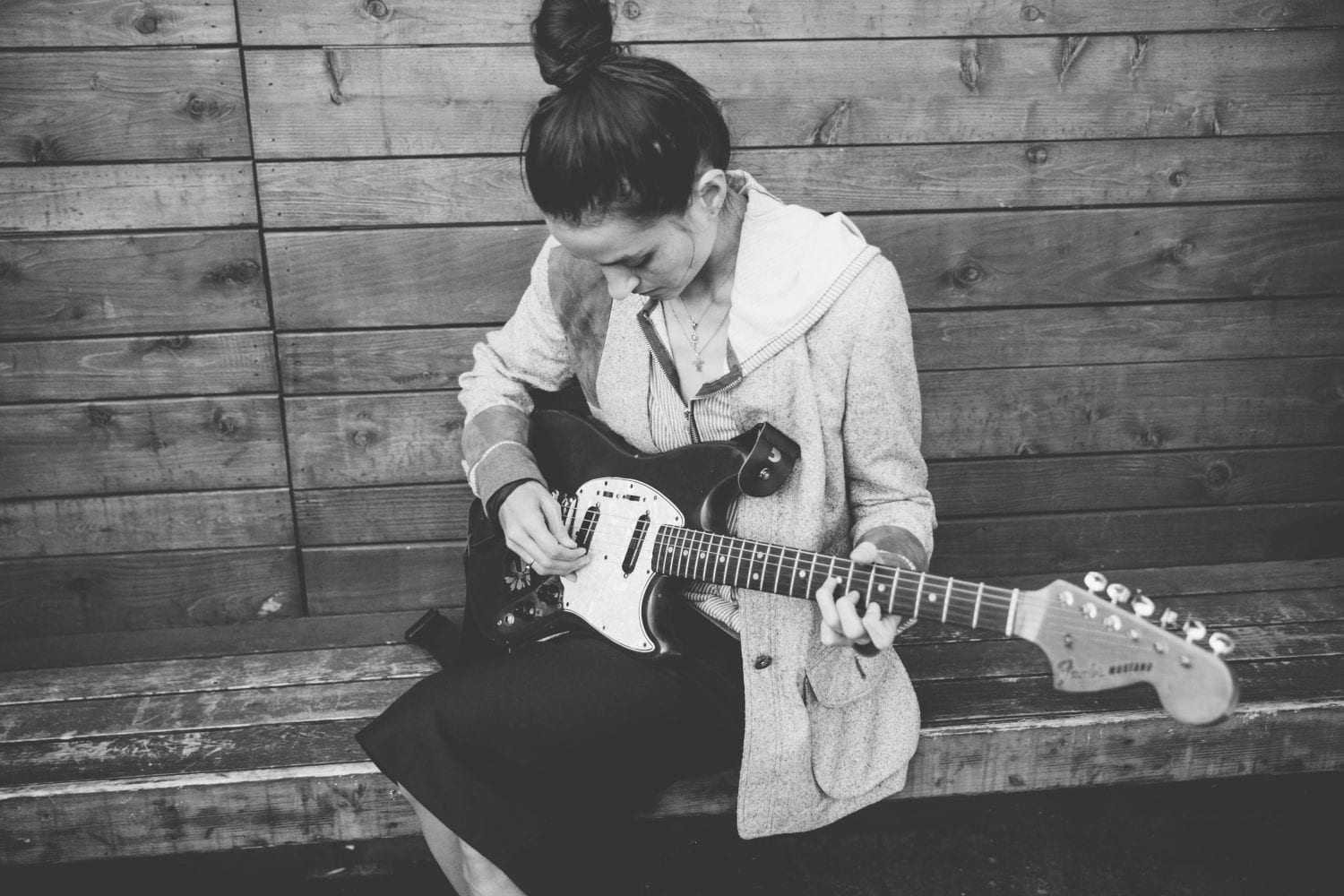
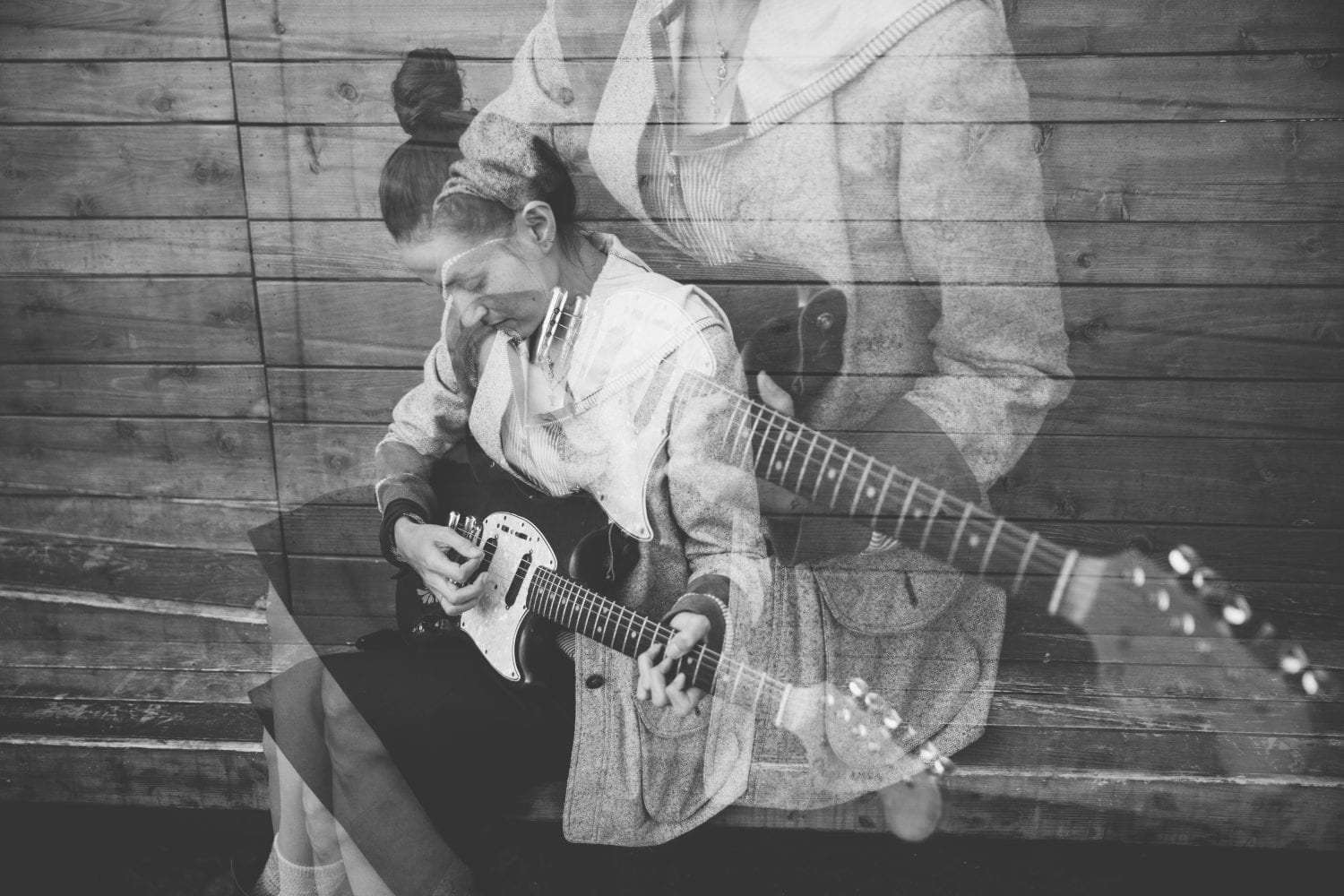
You put out a solo album end of last year. Did that change the way that you approached the collaboration on this album?
It definitely did. I think that I got some stuff out of my system. I was able to execute my visions. I was able to have control over the whole situation. I was the director. Do you know what I mean? It was my vision and my creativity. In this band, obviously there’s four people in the band, but it was amazing to be able to exercise that and to come back to the girls. I was able to relinquish control a lot more and sit back and let things happen and not feel so precious about everything.
I was excited to hear what the girls had been writing and to play on top of their songs. In the past, everybody was a little antsy like, “Okay. It’s got to be fair. We’ve all got to write our bits and have our songs,” and I just didn’t care about that [this time]. I was just excited to be a team player and just collaborate because that’s the antithesis of what I’d just been doing. It was actually very refreshing for me to collaborate and also just have different ears and listen to things differently. Not that you do it on purpose, but even subconsciously you might be coming from more of an ego place when you’re collaborating or doing anything artistic or creative.
With other people you don’t know that you’re doing it but sometimes it’s like, “what are your intentions and your motives behind that decision for writing something?” I’m not really sure about that. Who knows. It’s not intentional but it’s subconscious and I feel like there just wasn’t any of that happening. It felt very loose. Very free. I felt very supportive and just excited to let things be. Restrict. Put limitation on things. Cool, let’s do that with a song. Cool, let’s just see what happens. It was a good feeling. I really enjoyed this recording process for sure. I felt like it was the most blissful—It was also the quickest! I’m really proud of this—it might be my favorite.
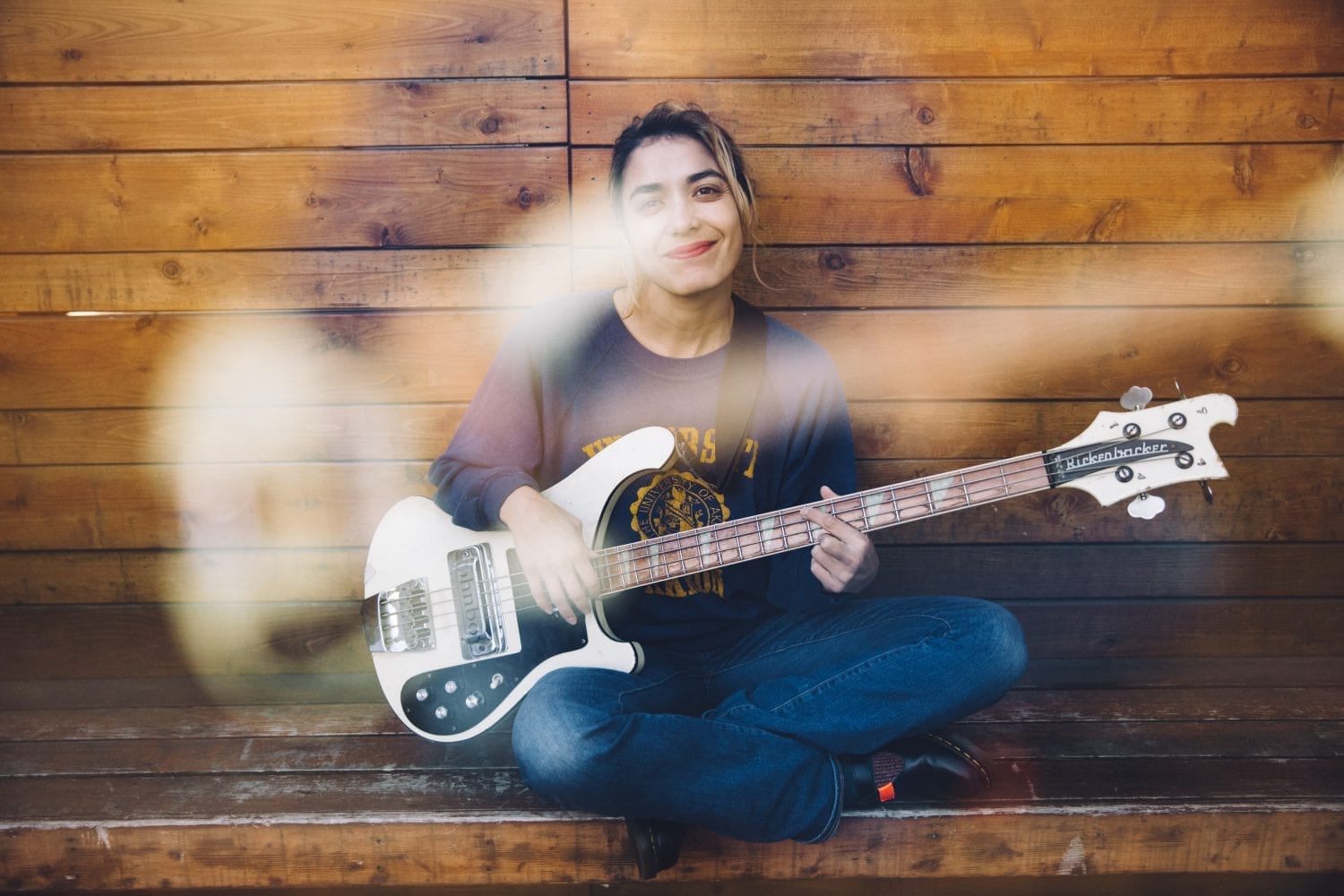
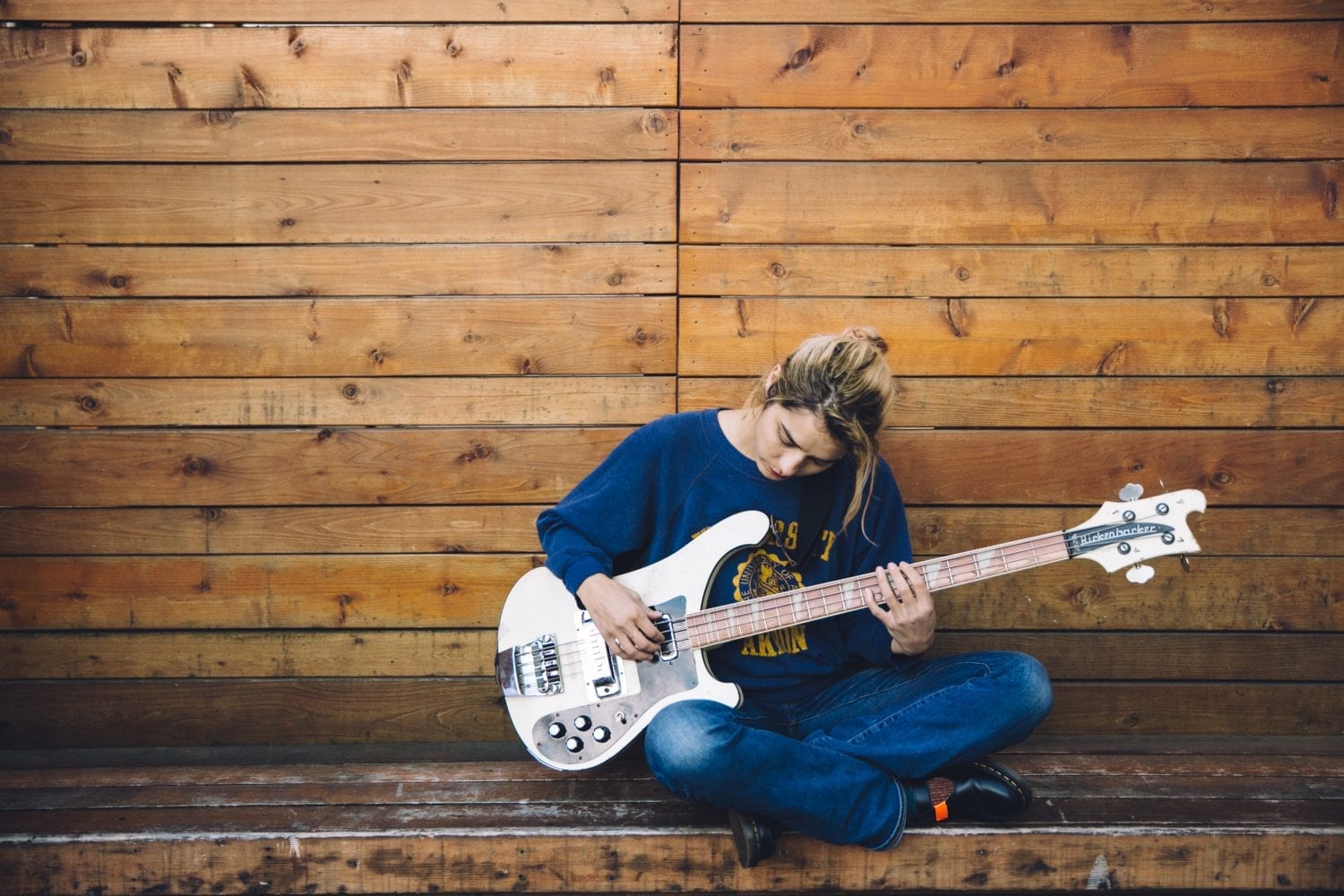
If you saw yourself ten years ago, what is the biggest thing that you feel like you’ve learned that you would want to tell yourself?
[Long pause] I like that I’m having trouble answering this question. Hmm. Nothing, I’m doing everything right [laughs]. I guess just to be in the moment, to be present, and to have gratitude for the moment, which is something I’m still doing, even from yesterday telling myself today, “Be in the moment. This is sweet. This isn’t going to last forever.”
I think we’re all pretty good about appreciating and having gratitude for what’s going on. I feel like that’s why we’re still a band after twelve years. We’re best friends. It is very challenging, but it’s also really easy for us to go, “Fuck. We’ve got something really special. Let’s appreciate it and not take it for granted.” That’s the one thing. Life goes by so quick, it’s just important to be in the moment and to appreciate things. You could die tomorrow or in five minutes. You just never know.
Let’s talk about gear for a second. The main thing that I noticed is that you play Rickenbacker and everyone else plays Fenders.
Yeah. We’ve just recently been gifted some things from Fender which is really nice. That Bass VI is a Fender. They just gave me a Mustang which is their new model which has a jazz bass and a P bass pickup, so there’s double and it actually sounds really nice; which I brought. I also have a Fender P bass, a ’79 P bass that I play from time to time. I’ve got a lot of things that, especially when we record, it’s fun to switch it up. It’s not always playing with the Rick, but when we play live I’m not going to have seven basses for every song. The Rick does the job for everything. I love that thing to death. Yeah, but when you record it’s fun to get a little crafty.
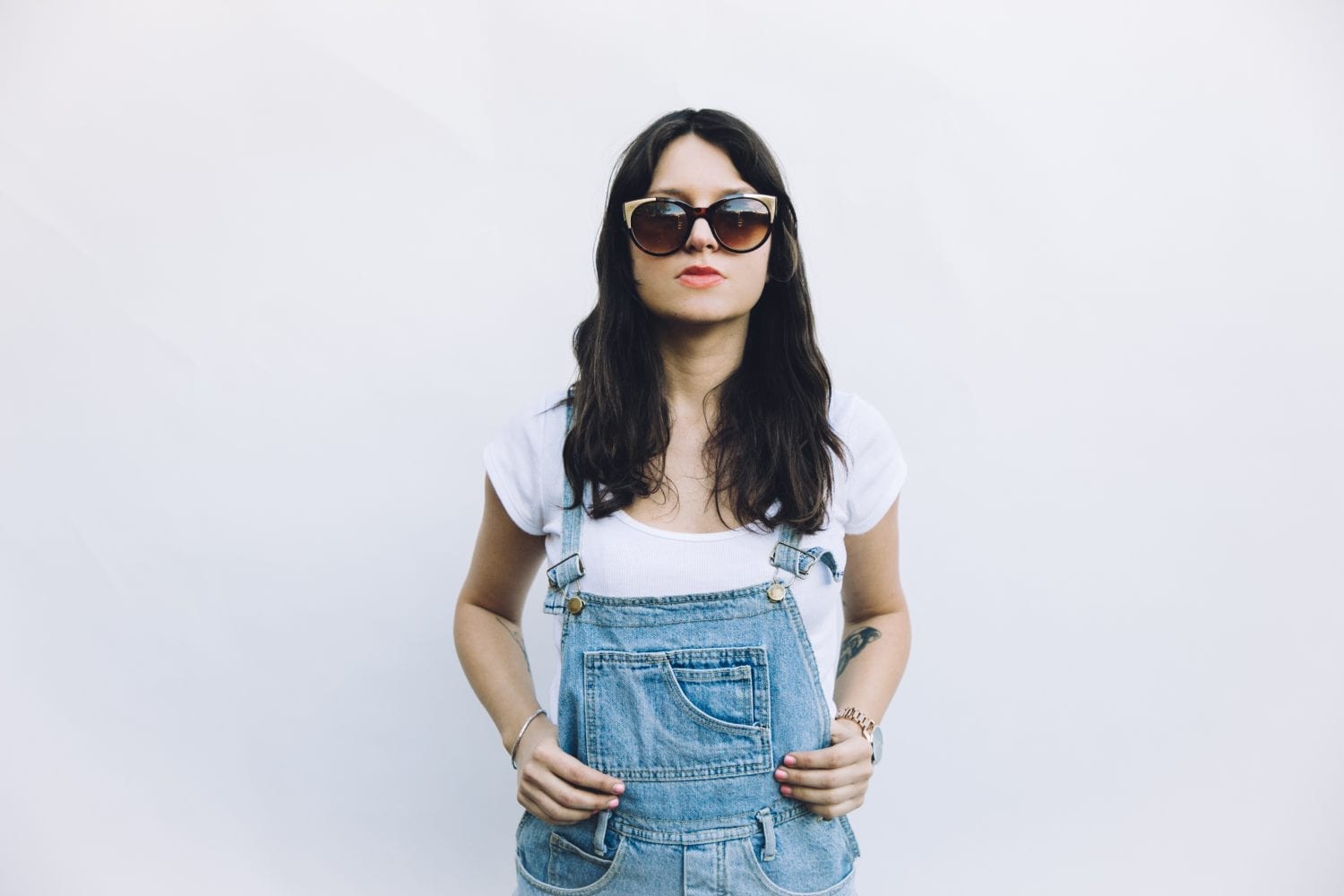
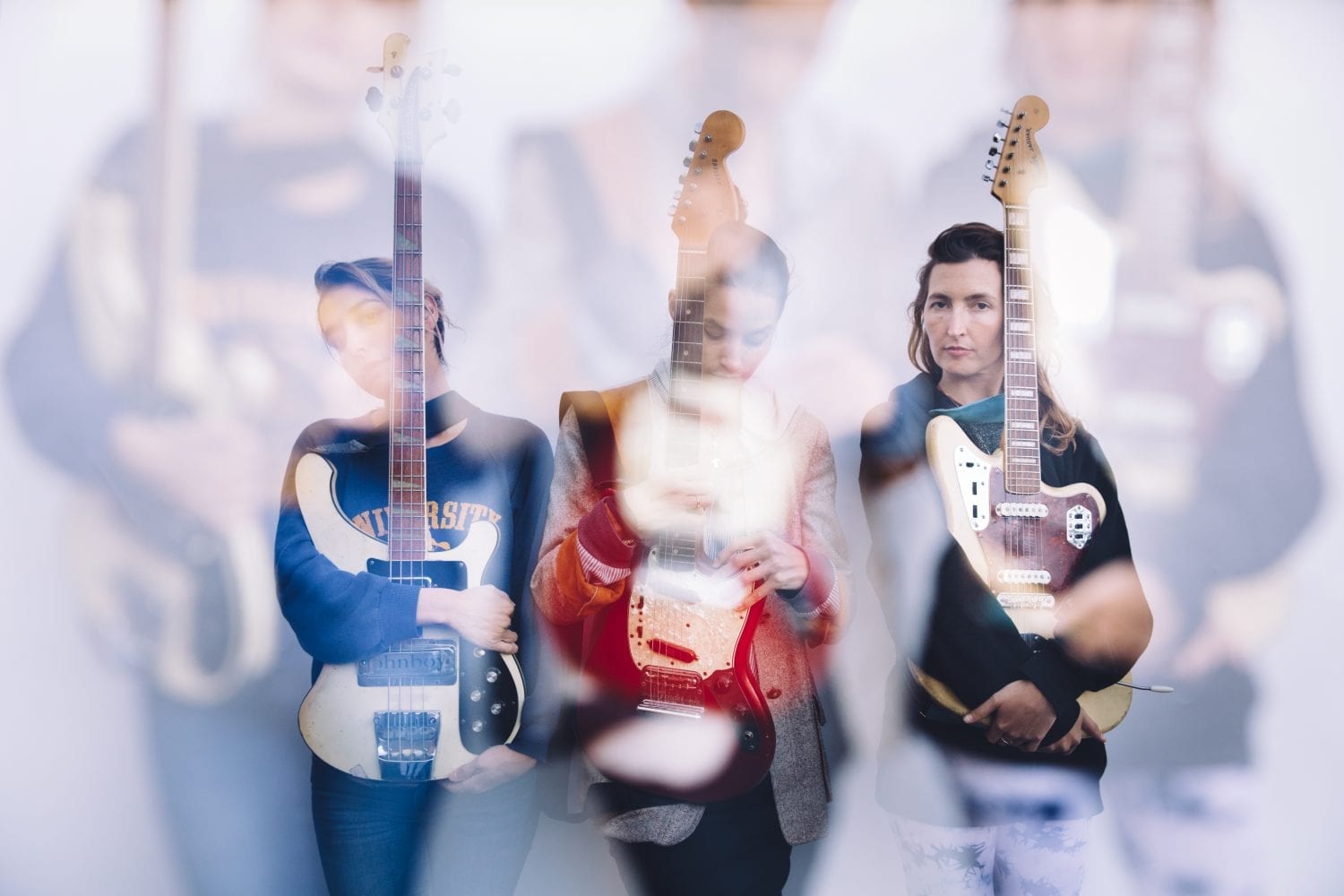
Is there anything else you’ve been experimenting with? It doesn’t even have to be bass.
Yeah. I guess I’ve been playing guitar a little bit more. I really, really love that six.
The Fender Bass VI?
Yeah. I love it to death. It’s amazing. It’s sort of like a guitar. It kind of looks like a guitar, but the top three strings are a little fatter than the bottom three. You could still kind of play bass with it, but they’re not as fat as an actual bass strings.
What about baritones? Have you ever messed with those?
I have. I actually have one of those. Those are amazing. That’s basically what the Bass VI is like. I have a baritone, but the strings are a little weird and the tuning is also funky, which is really nice.
Odd question but If someone was going to be Warpaint for Halloween, what are the five things that they’d need?
Oh if they were going to be a cover band. Well, they would need a Rickenbacker, a chorus pedal, a jag, a mustang….
It can be more than five, too.
I guess just all the gear we play with I suppose. Maybe they wouldn’t need that even. Some personality: A sense of humor, some colorful clothing. What else? A fog machine…
That’s a good one.
Fog machine, some carpets, some Christmas lights.
Some mood?
Some mood. Yeah. Some cozy homey mood style shit.
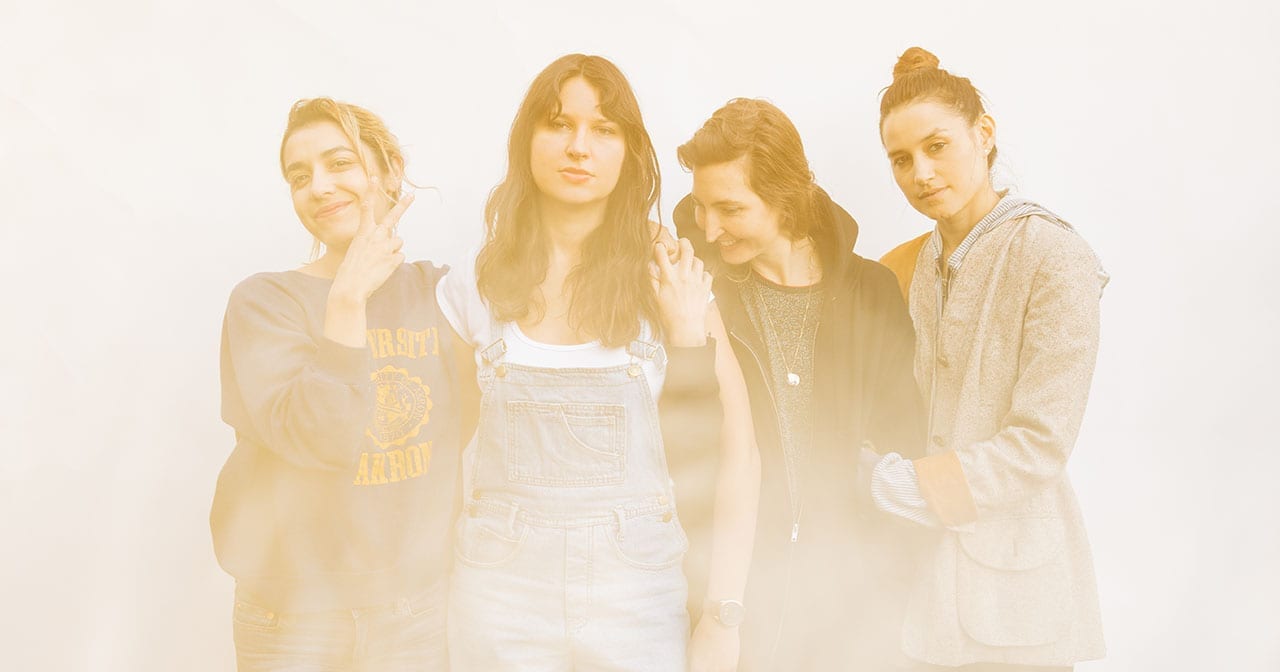

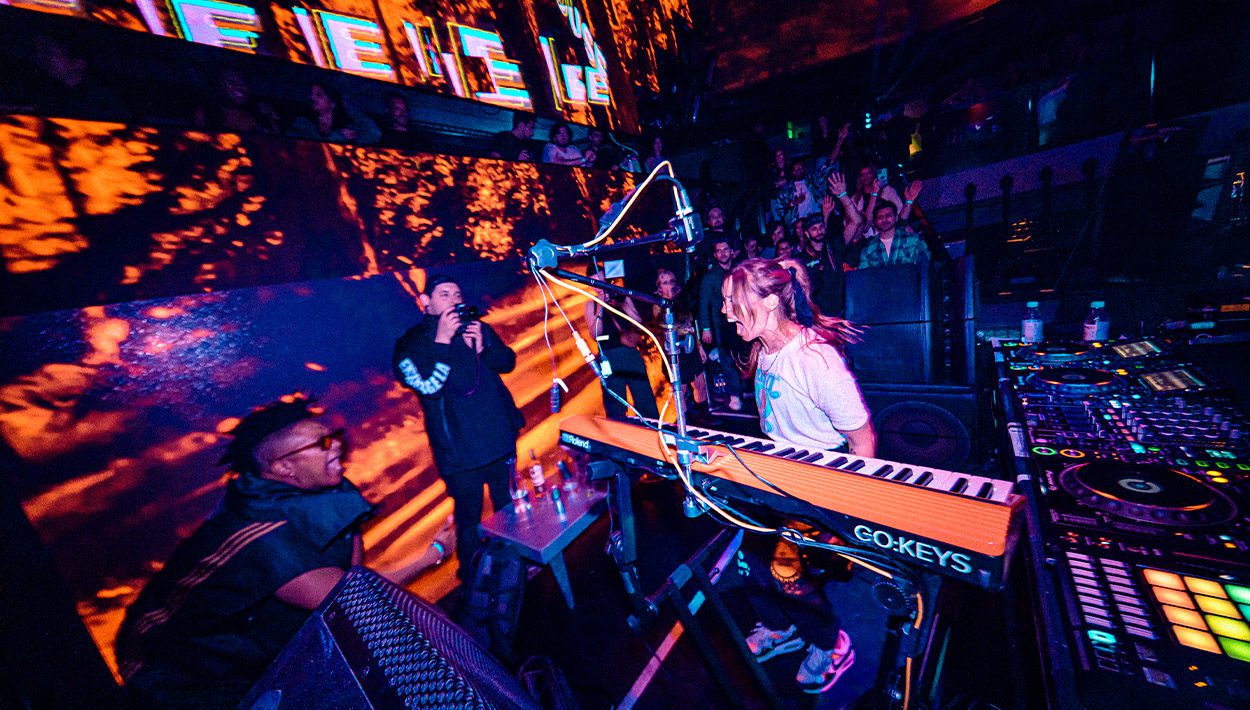
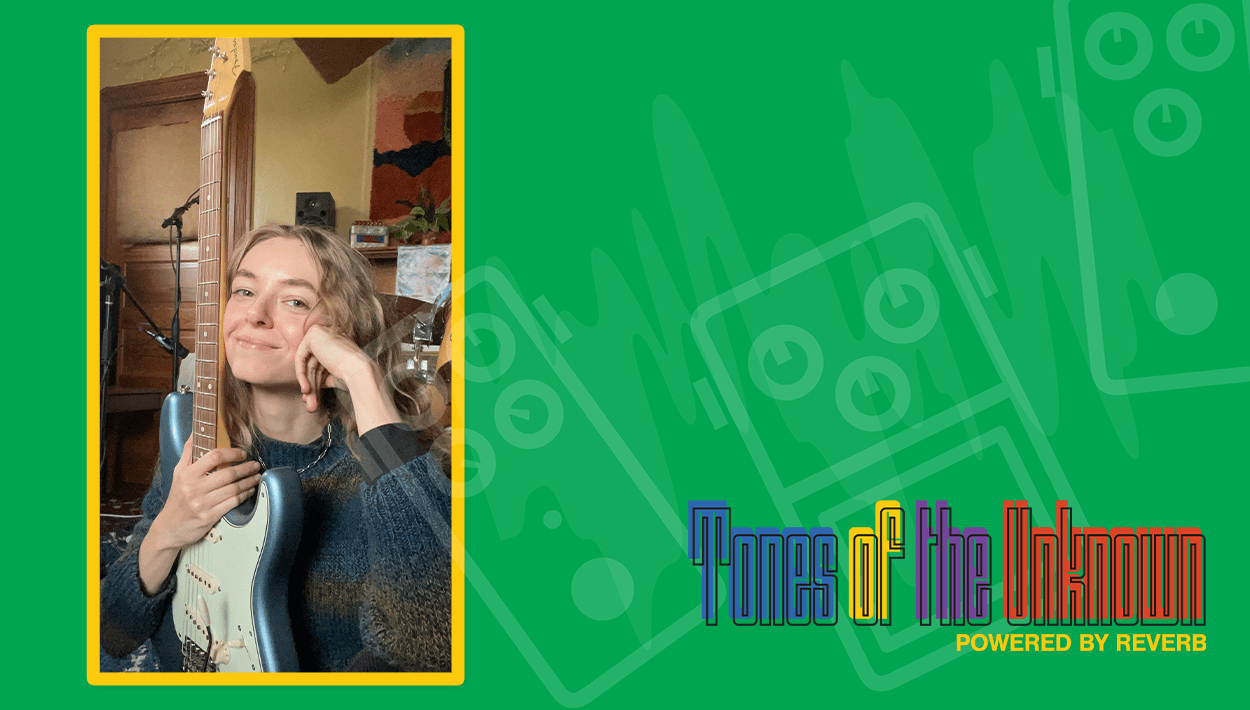
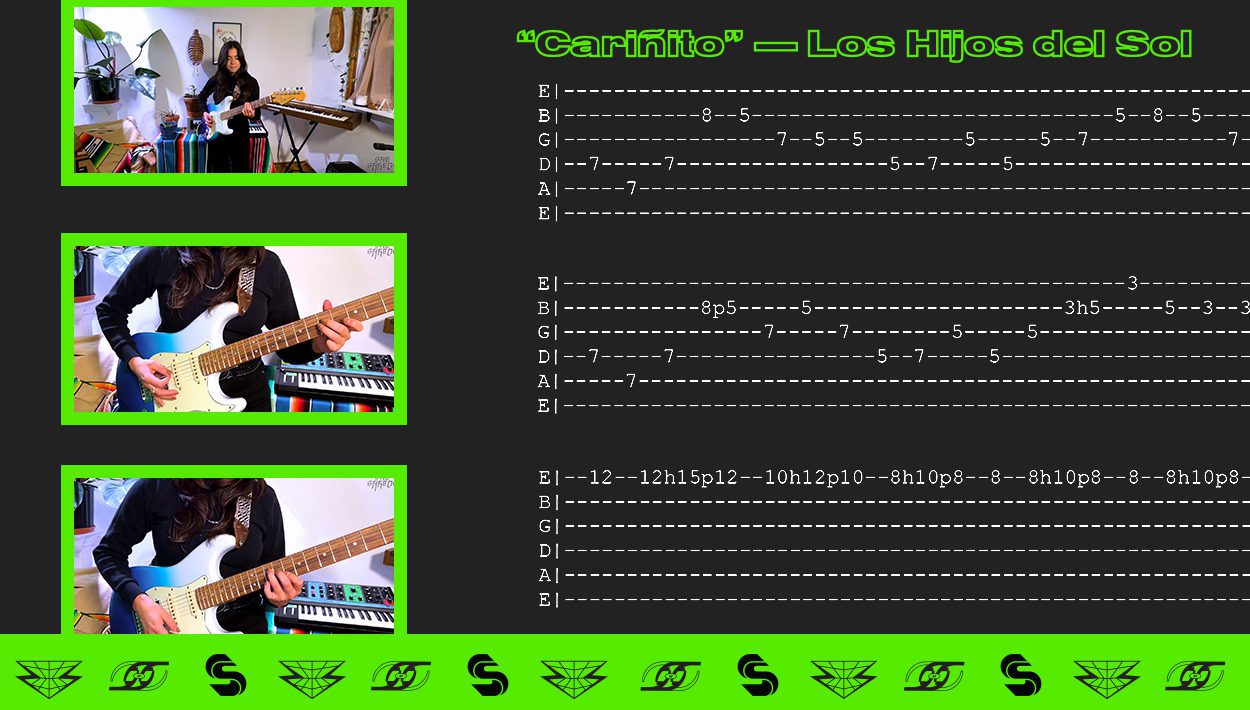
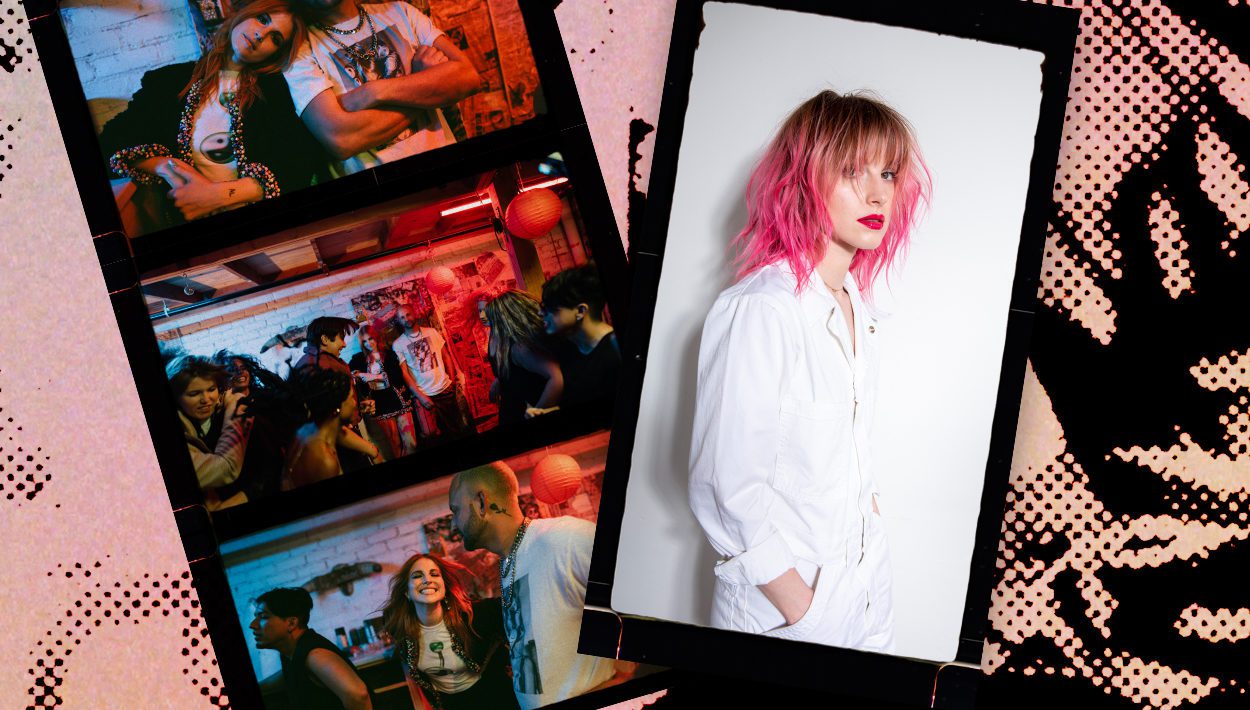
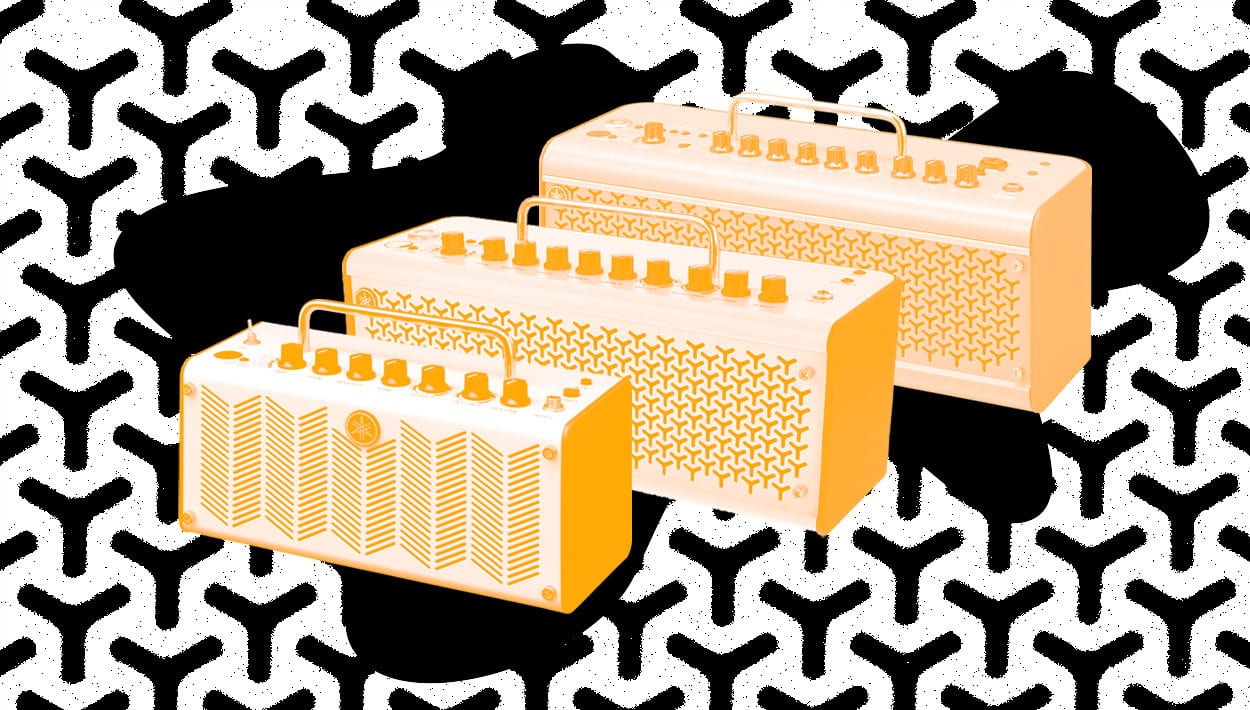
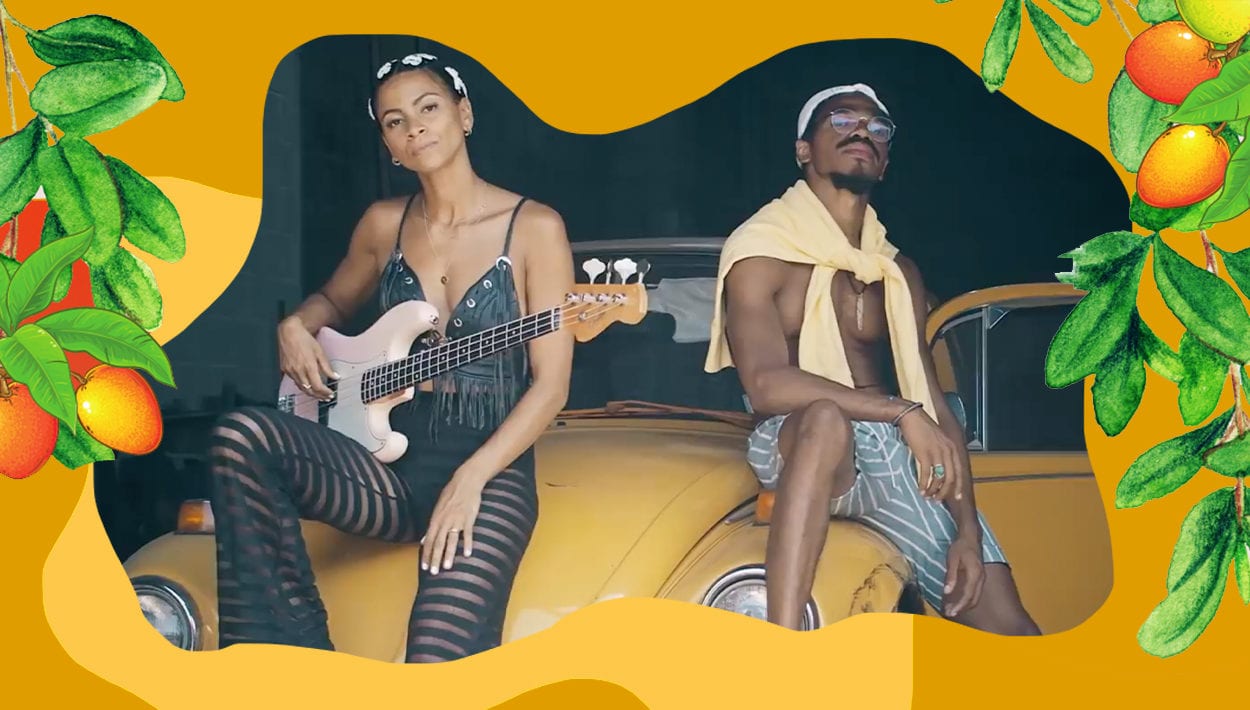
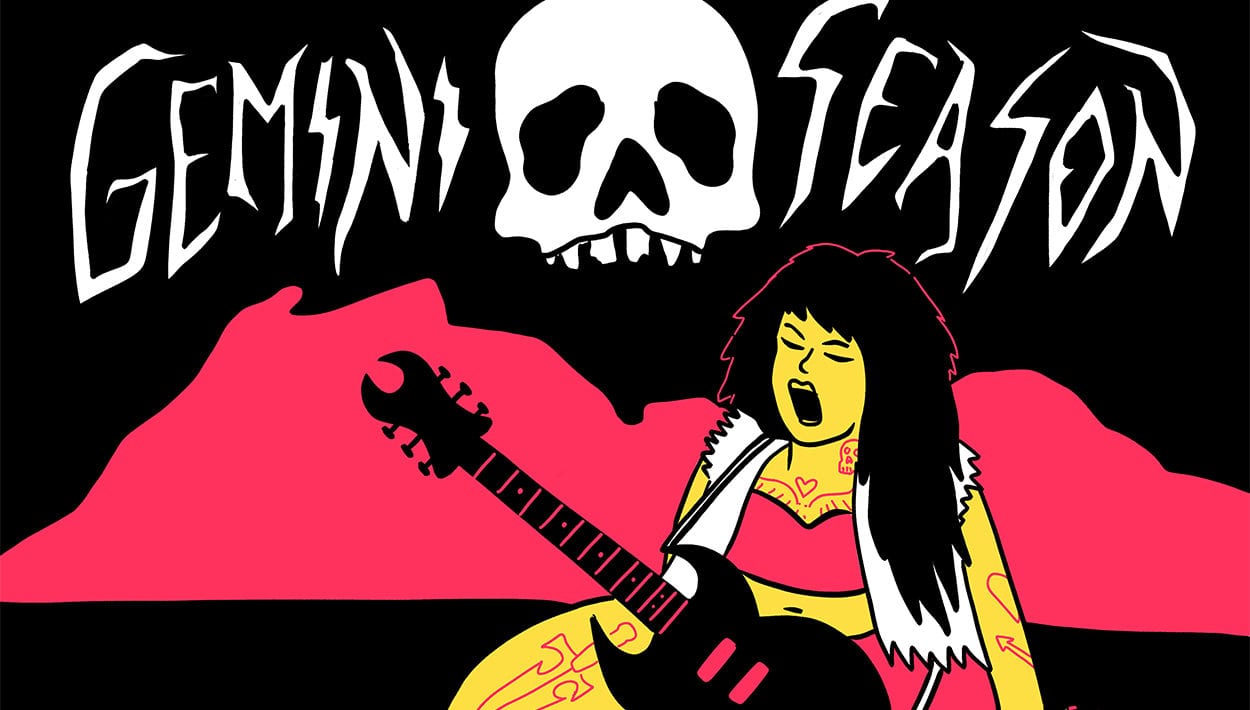
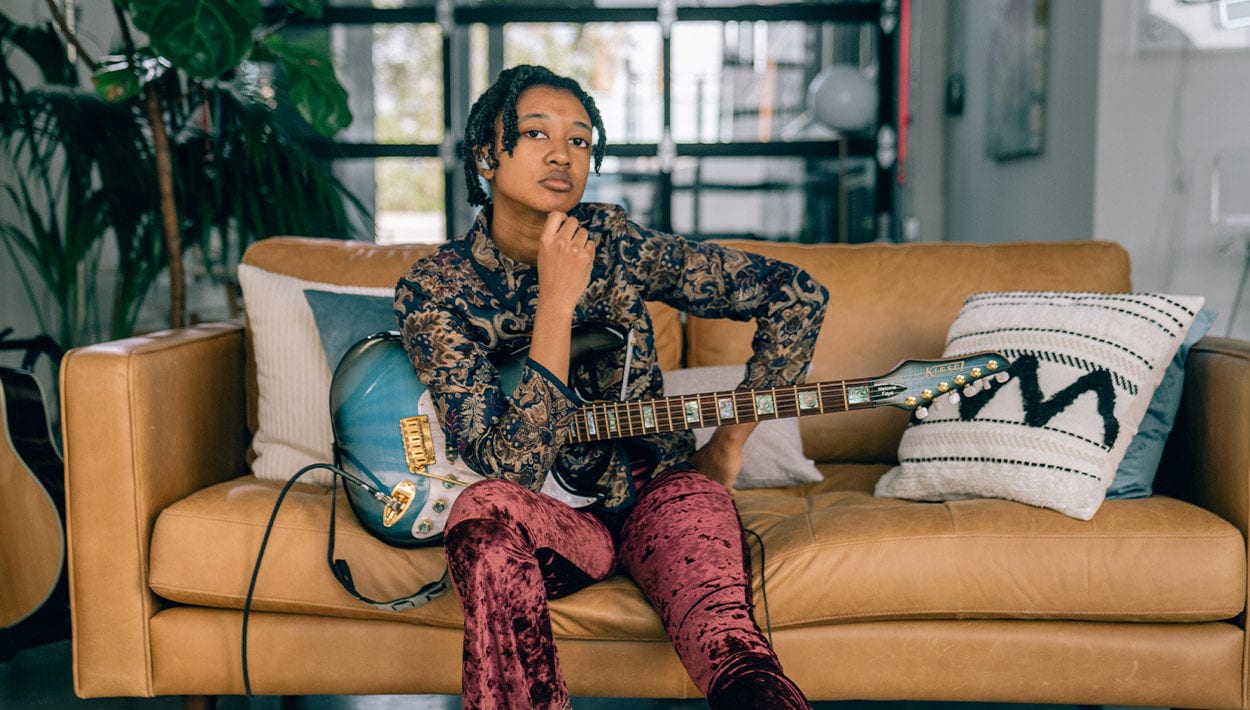
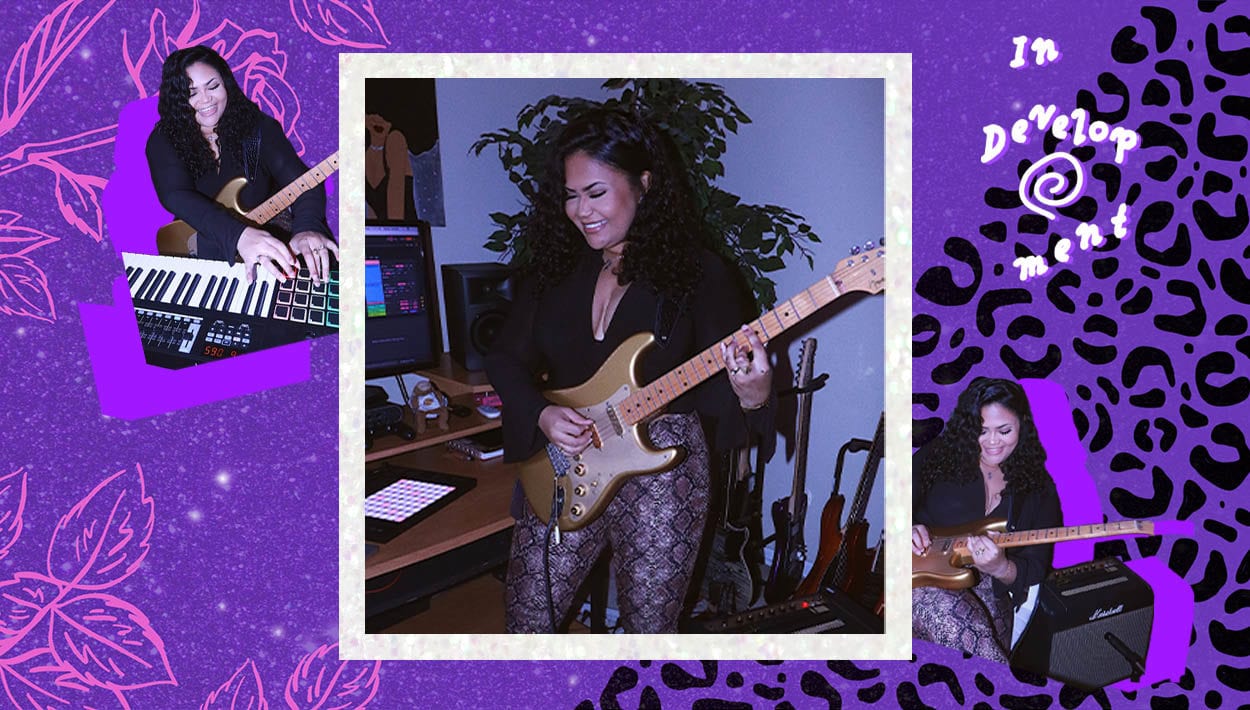
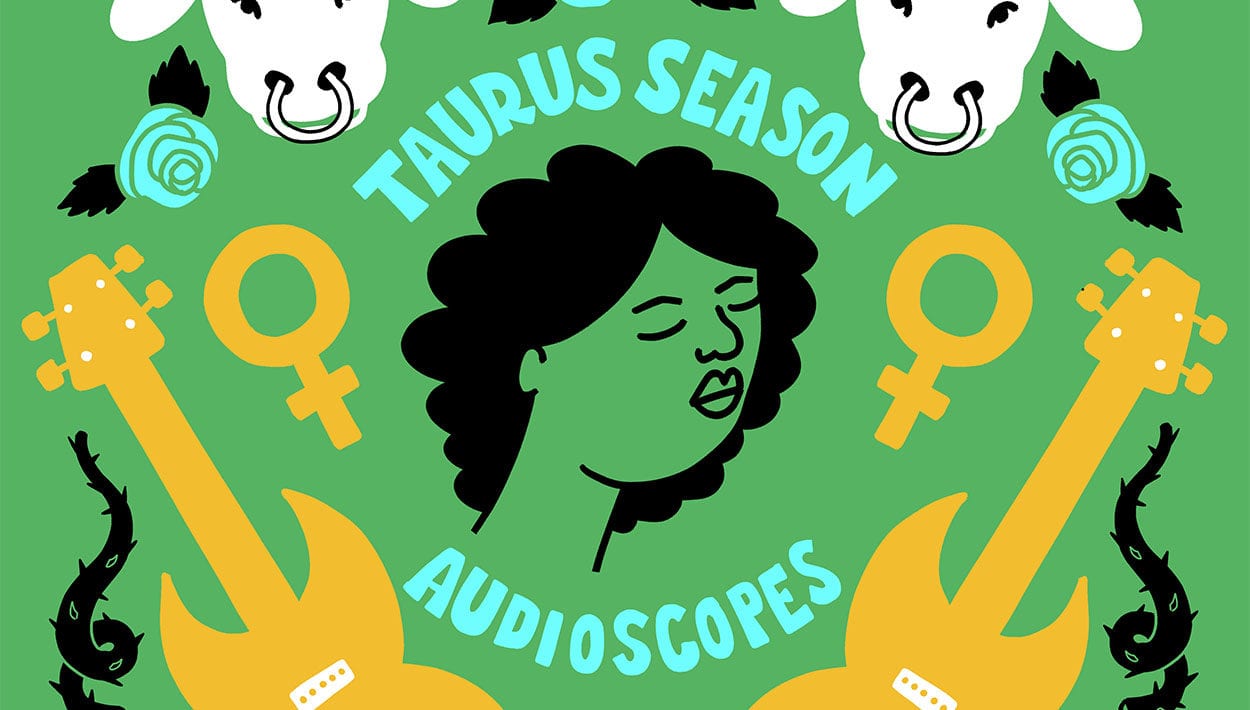


Comments
[…] Gear, Mood and Intention: Q+A with Warpaint’s Jenny Lee Lindberg @ She Shreds […]
Pingback by Press Cycles: Warpaint's Heads Up - Space Echo on March 3, 2021 at 7:12 am